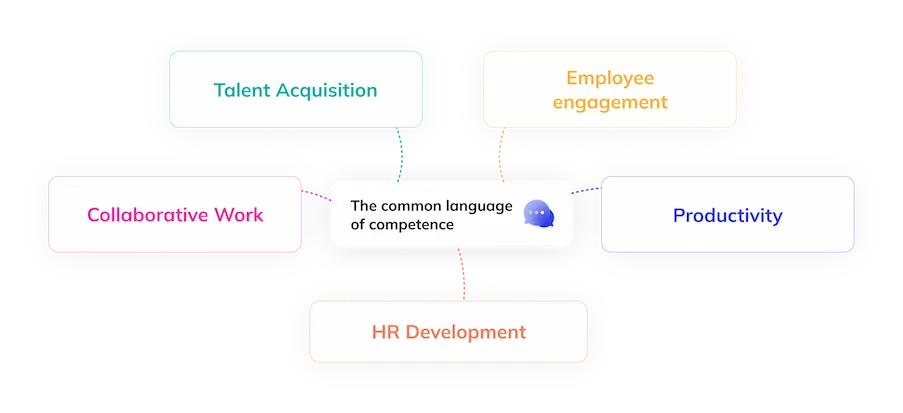Business leaders are currently witnessing an increase in the availability of artificial intelligence (AI) and machine learning (ML) solutions within HRIS. According to an Axys study, 86% of HR managers see a strong interest in using this technology for task automation. In addition, less than one in five solutions deployed would use the technology. Different levels of maturity coexist depending on the use cases and the digital culture of companies.
In fact, these technologies can help with the vast majority of HR operations and processes. This includes not only resource planning, candidate search and screening, recruitment, onboarding, employee management, compensation and benefits management, bonuses, and training. The HR function still has reservations about what can be seen as an abstract concept, when it is primarily an ally of the profession.
In this article we ask the question of which HR processes AI and Machine Learning optimize:
AI and Machine Learning reduce delays in everyday tasks
HR tasks related to day-to-day services and employee assistance are an important part of the work performed by the HR department. Often, these tasks involve a high level of repetitive work and are time-consuming due to document research requirements. making these HR processes more relevant, goes a long way to creating better work experiences for employees. Some resistance to change remains, however. Here are the tasks involved:
- Processing and analysis of vacations, work schedule, remuneration and bonuses
- Conversational agents to manage applications: responses and follow-up workflow
- Analysis and automatic generation of documents (email responses, interview reports, etc.)
How to distinguish AI from Machine Learning in HR?
The use of the terminology "AI" is sometimes abusive since it is necessary to distinguish Robotic Process Automation (RPA) from AI: typically a Chatbot uses RPA and not AI.
Artificial intelligence performs tasks based on initial programming, whereas machine learning progresses over time without being instructed. Thus, applied to HR, this technology contributes to understanding a user's preferences over time. This will be a great asset to propose the best training resources or projects for his career.
Let’s take a look at artificial intelligence and its impact on talent management, we recommend the article“AI for Talent Management“.
AI optimizes recruitment data
The growing use of predictive analysis offered by AI favors the relevance of recruitment objectives in real time according to the needs of the situation. It is even possible to carry out various scenarios (recruitment freeze, job transformation, etc.) and to deduce the impact on staffing.
Large organizations with complex staffing needs, involving multiple project-based hiring requirements, have to spend a lot of time and resources on the administrative tasks that accompany the hiring process. Cloud solutions combined with artificial intelligence and Machine Learning are able to take on these routine and repetitive tasks, allowing HR to focus on more qualitative and strategic issues needed by the organization.
The skill becomes the common language of the company: from recruitment to training, this notion is the one that links all HR activities.
AI improves the relevance of the training offer
Regarding training, AI plays a significant role, as it allows to map and plan training needs and to improve the relevance of the training offer. The employee today has a varied choice of training content and self-training has taken on a new dimension. Therefore, the content offered by the HR development team must be precisely matched to the skills to be improved, adapted to the development aspirations of each individual and meet the employability objectives.
The learning experience becomes a driver of learning thirst with Learning Management Systems. The right courses are offered to employees, then a workflow of validation, planning, and evaluations is generated to track the impact on performance improvement.
AI and Machine Learning: a great ally in career individualization
Employee performance analytics is another HR process that is heavily impacted by these emerging technologies. AI and LM-based performance analytics solutions enable HR departments to make data-driven decisions so that key employee performance indicators are highlighted at both the individual and group level. Going far beyond simply looking at individual performance, these solutions can also highlight team, departmental, and service performance, facilitating executive management decision-making.
Today’s talent is looking for a space where all opportunities are bundled together. This is how they will be able to grow internally and how the company will improve retention. This space is called “Talent Marketplace”, promoted by several Anglo-Saxon HR thinkers, it has convinced companies like Unilever, HSBC, Schneider Electric. We invite you to discover what will become the preferred tool very soon, here is our Guide to the Talent Marketplace.








